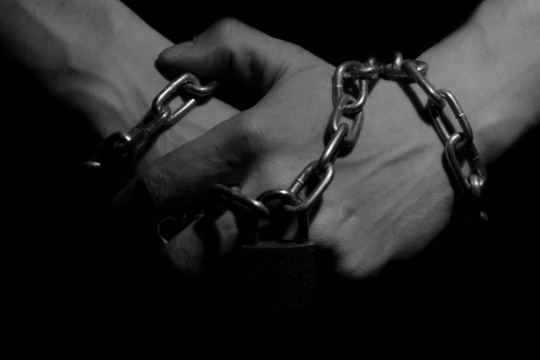As we prepare for Passover in only a few weeks, we know that celebrating Passover connects us as Jews – to our families, to our communities and the broader Jewish people. Passover also unites us with humanity. Many people across our country and our world have experienced oppression and persecution. Although we were once slaves, avadim hayinu, we now are free—but too many in the world are not. Modern-day slavery is one of the most profoundly troubling plagues of our time. The innumerable people who are trafficked for sex work or domestic work all have one thing in common: their freedom has been taken from them.
This month, many in the anti-trafficking community rallied around the Justice for Victims of Trafficking Act (S. 178), a bill to enhance protections and increase the infrastructure around restitution for victims of human trafficking. One key feature of the bill is the establishment of a Domestic Trafficking Victims Fund to provide financial support to individuals as they rebuild their lives after having been trafficked. The bill had strong, bipartisan support, a rare instance in which members of Congress united across the ideological spectrum. The bill passed swiftly through procedural steps and seemed poised for easy passage. As a vote neared, however, it came to light that language had been added to restrict trafficking victims from accessing abortion services if they were going to use help from the victim assistance fund.
The anti-choice provision mirrored language in the Hyde Amendment, a prohibition on taxpayer funding for abortion that affects all federally-administered health-care plans like Medicaid, and would create a harmful barrier between survivors of domestic trafficking and the comprehensive health care they need. The provision in the trafficking bill sought to expand Hyde’s attack on reproductive rights by restricting money from the Domestic Trafficking Victims Fund—which is financed by penalties from convicted federal offenders and not by tax dollars—from being used to help trafficking victims cover the cost of abortion, with exceptions only in cases of rape, incest or if the woman’s health is in danger.
Many in the reproductive rights and human trafficking advocacy communities expressed their dismay that anti-choice Senators inserted this restrictive language into the bill. A number of Senators withdrew their support from the bill, leaving it without enough votes to advance in last week’s procedural vote.
In this Passover season of freedom and of redemption, when we are reminded of the plight of our ancestors and their Exodus from bondage. Our hearts cry out for those who are victims of modern-day slavery, and we must do all we can to ensure their liberation and recovery, including in health care choices. Jewish tradition teaches that all life is sacred. Although an unborn fetus is precious and to be protected, Judaism looks on the life and well-being of the woman as central. Indeed, women are required to care for their own health above all else, placing a higher value on existing life than on potential life. Grounded in these affirmations of a woman’s right to make her own reproductive health care decisions, we strongly oppose restrictions on abortion access.
As we transition to Passover in the coming days, let us keep in mind all those who do not today know freedom—reproductive freedom, freedom from trafficking and the freedom to make decisions about their lives and their future. The RAC has created a Modern-Day Slavery Haggadah and a reproductive justice reading insert to bring these critical issues to your table for Passover. Be sure to take a look and use all or a part of these resources as they fit into your seder. Let this Passover inspire us all to be more attuned to the fight for freedom from oppression that is still being waged.
Related Posts
Image

Modern-Day Slavery: Bringing Awareness to Human Trafficking in 2017
National Slavery and Human Trafficking Prevention Month serves as a time to bring awareness to the issue of modern-day slavery: the trafficking in persons that occurs around the world and within communities in the United States.
Image

Slavery Didn't End in Egypt: Human Trafficking Passover Resources and Legislative Update
Earlier this year, the United States took meaningful action to further prohibit products made by slave labor to enter our country.
Where Are We With Human Trafficking Legislation?
Last week, the House of Representatives passed the Justice for Victims of Trafficking Act (S. 178), a bill to enhance protections and increase the infrastructure around restitution for victims of human trafficking. The vote was nearly unanimous, with all but three present Representatives voting in favor of the bill, which was identical to the version the Senate passed a few weeks prior. The bill moves now to the President, who is expected to sign it into law.
